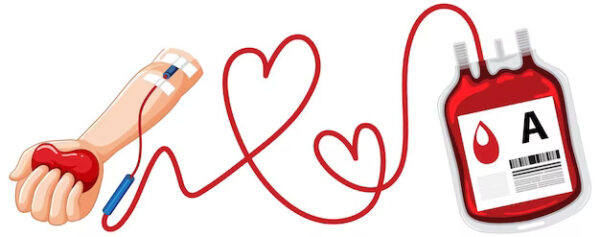Last updated on September 21, 2023
Many people donate blood at some point, but have you ever considered plasma donation? Plasma is the blood component that contains proteins. Plasma’s primary function is facilitating the transportation of nutrients and wastes. It helps in blood clotting and fighting infections and is used in treatments such as when dealing with burns, immune deficiency, or hemophilia. While it may sound complex, the process is fast and relatively safe. You’ll be in and out of the plasma blood bank within less than two hours and back to your routine. Here is a quick breakdown of plasma donation and its potential benefits to donors.
Plasma donation process
The process entails drawing blood from one arm and passing it through a machine that separates the plasma from red blood cells and plasms. After the plasma is collected, the red blood cells and platelets are returned to your bloodstream. This process takes an average of 1-1 ½ hours. While it takes 24-48 hours for the plasma to regenerate, the process doesn’t have downtime. The window only applies to the frequency you can donate, not when you can return to your routine.
Eligibility
Every plasma blood bank has a set of eligibility checks. Nonetheless, the standard criterion considers your age, weight, and overall health. You must be of legal age, which is at least 18 years, but some banks set the age at 19 or 21. You should be in a healthy weight range, with the standard range being 110-130 pounds. The eligibility checks also include medical screening, including a physical examination and medical history questions. Certain medical conditions like hepatitis B or C means an individual can’t donate plasma.
Pre-donation preparation
Plasma donation does not necessitate any special preparations. Nonetheless, it is recommendable that you get quality rest, like a good night’s sleep. You should eat healthy, protein, and iron-rich foods while avoiding fatty items. You should also take plenty of fluids to remain hydrated before, during, and after donation. However, you should avoid caffeinated or alcoholic beverages. The measures are also recommended after the donation to help replenish the body of the nutrients and fluids lost. Some plasma blood banks have specific additional pre-donation preparation measures, such as on certain medication or fasting guidelines which you should familiarize yourself with for a smooth process.
Plasma donation frequency
Plasma regenerates much faster than whole blood. This means you can donate it more frequently than blood. The standard frequency is after every four weeks (28 days). Some blood banks may allow more frequent donations, while some situations may limit how often you can donate. Younger and healthier individuals can donate more often. However, if you have conditions like anemia or are under medication, you may be limited to fewer donation times a year.
Side effects
Plasma donation is generally a safe procedure. Nonetheless, some individuals may experience some mild side effects like bruising and discomfort at the needle site, lightheadedness, and fatigue. Side effects like fatigue and lightheadedness can be prevented such as by ensuring you are well-hydrated before and after the donation. While the common side effects are mild and resolve quickly, rare and serious complications can arise after plasma donation. You could experience severe citrate reactions characterized by seizures, heart rhythm disturbance, or difficulty breathing. You could also faint or develop an infection, vein inflammation, or blood clots. This emphasizes the need to employ due diligence as you choose a plasma blood bank for your safety.
Plasma donation benefits
-
Save lives
Have you been looking for a valuable means to give back to the community? It doesn’t get any more personal than donating your plasma. The plasma you donate can save lives or improve the quality of life for patients struggling with concerns like immune deficiencies, hemophilia, and burns, among other issues. The plasma is used in the development of medicine needed for various conditions, which helps save lives. It is a fulfilling endeavor that makes you feel good knowing you may have saved or turned someone’s life around, allowing them to lead a better life.
-
Health benefits
Among the main eligibility checks before you can donate plasma is medical screening. The free physical examination, screening test, and a dive into your medical history provide rich insights into your overall health and wellness. You can use this information to manage your health needs proactively. For instance, you can spot a developing issue in time, seek professional attention, and implement effective interventional or treatment measures. This can save you more money and time and improve your life’s quality in the long run, especially considering the costly nature of healthcare services.
-
Compensation
While the primary reason for plasma donation is to help others in need, you’ll also get a bonus in terms of compensation. Plasma blood banks usually provide an incentive to donors. The inventive could be in the form of monetary compensation or gift cards, among other options. Compensation for your time, effort, and valuable plasma is incentive enough to spare the short period for the donation process.
Plasma donation is an excellent way to give back to the community, make a lifesaving difference, and get rewarded. Nonetheless, you must be diligent as you explore the path, mainly when choosing a plasma blood bank. You want a plasma bank near you, which you can conveniently access, such as on your way back home or over the weekend. Besides location, you should pay close attention to the facility and the staff. This is more so considering the potential side effects. Also, check out the facility’s reviews and ratings from previous donors. This will tell you what to expect and help eliminate facilities subjecting donors to frustrating experiences.
A hygienic facility run by friendly professionals makes the process safer and more productive. You wouldn’t be afraid to speak up, such as when you experience pain or discomfort, which could signify a potential issue. The professionals also take prompt action to ensure a safe and smooth process. While not the main objective, the bank’s reward is also worth your time and effort. Such plasma blood banks help you make a difference without worrying about complications or getting rewards that aren’t worth your time.


















Be First to Comment